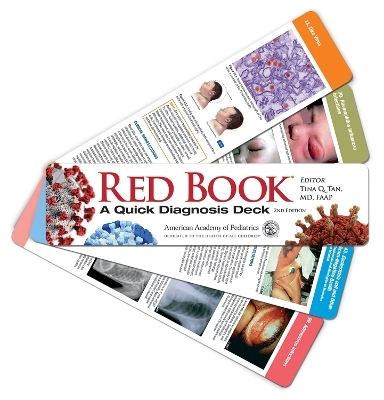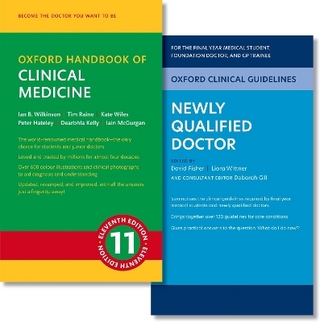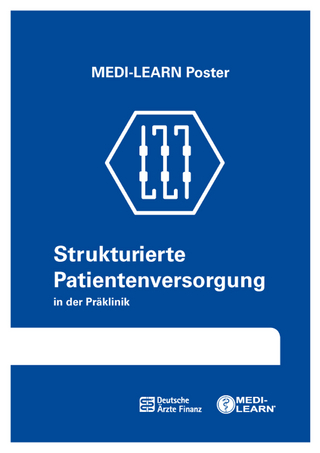
Red Book
American Academy of Pediatrics
978-1-61002-516-4 (ISBN)
This handy, point-of-care differential diagnosis tool features more than 450 pediatric infectious disease images, paired with the current Red Book® clinical manifestations, in a convenient and portable deck format.
Physicians, nurse practitioners, and other health care professionals can turn to this authoritative reference during the office visit, particularly when faced with a perplexing diagnostic situation.
Residents, medical students, and other trainees have found this deck to be a valuable reference for infectious disease images and targeted manifestation descriptions at their fingertips. More than 170 cards are laminated and bound with a metal grommet to enable the cards to endure the rigors of daily clinical use.
This second edition features 102 diseases, now including
Coronaviruses, such as SARS-CoV-2 and MERS-CoV
Pseudomonas aeruginosa infections
Every card has been fully updated according to current Red Book Clinical Manifestations guidance.
The American Academy of Pediatrics is an organization of 67,000 primary care pediatricians, pediatric medical subspecialists and pediatric surgical specialists dedicated to the health, safety and well-being of infants, children, adolescents and young adults. The AAP is the largest pediatric publisher in the world, with a diverse list of resources that includes essential clinical and practice management titles and award-winning books for parents. Dr Tan is Professor of Pediatrics at the Feinberg School of Medicine, Northwestern University, and a Pediatric Infectious Diseases attending; Medical Director of the International Patient and Destination Services Program (IPS); co-Director of the Pediatric Travel Medicine Clinic; and Director of the International Adoptee Clinic at Ann & Robert H. Lurie Children’s Hospital of Chicago, Chicago, Illinois. She is board certified in pediatrics and pediatric infectious diseases. Dr Tan recently served as a member of the Board of Directors of the Infectious Diseases Society of America (IDSA, 2017-2020). She is also a member of the IDSA Education Committee and the chairperson of the IDSA Committee on Diversity, Inclusion, Access & Equity. She has served as Chairperson of the American Academy of Pediatrics (AAP) Section on Infectious Diseases (SOID, 2014-2018) and as a member of the AAP Committee on Infectious Diseases (COID, Redbook Committee, 2010 - 2018). She currently serves as chairperson of the AAP Global Immunization Advocacy Project Advisory Committee and is a technical advisor for the AAP/CDC Global Immunization Advocacy Project, the AAP Antimicrobial Resistance and Stewardship Workgroup—Education Subcommittee, AAP Expert Pertussis Cocooning Advisory Committee, and liaison to the CDC ACIP Pertussis Working Group and the Illinois Chapter of the AAP OB/GYN Immunizations and Pregnancy Outreach Committee. She is a member of the American Board of Pediatrics (ABP) Global Health Task Force Dissemination and Advocacy Work Group. Dr Tan is a member of the Vaccine and Related Biologic Products Advisory Committee (VRBPAC) of the Food and Drug Administration (FDA) and the Board of Scientific Counselors, Office of Infectious Diseases, Centers for Disease Control and Prevention (CDC), where she serves as co-Chair of the AFM Task Force and the Vaccine Confidence Task Force. She served as a member of the Advisory Commission on Childhood Vaccines of the US Department of Health and Human Services from 2016 to 2019. She is the Editor-in-Chief of Contemporary Pediatrics and the American Academy of Pediatrics Red Book Atlas of Pediatric Infectious Diseases and the Red Book: A Quick Diagnostic Deck. She serves on the editorial boards of the Journal of the Pediatric Infectious Diseases Society (Official Journal of the Pediatric Infectious Diseases Society), Internal Medicine Reviews, and Vaccines. She is the Co-Chairperson and US Representative to the International Steering Committee of the Global Pertussis Initiative (GPI); a member and consultant to the Steering Committee of the Latin America Without Pertussis Initiative (PAHEF, SLIPE); a member of the Expert Pertussis Core Team for Latin America & the Caribbean: Pertussis Action Plan 2020; a member of the Board of Directors of the World Association of Infectious Diseases and Immunological Disorders (WAidid); and a member of the US National Pertussis Task Force (AAP and Every Child by Two). She also is a member of the vaccine advisory boards of Merck, Sanofi Pasteur, GSK and Pfizer/Wyeth.
How to Use This Deck
Figure Credits
ANIMAL- AND INSECT-TRANSMITTED INFECTIONS
Infections Transmitted by Animals
1. Anthrax
2. Cat-Scratch Disease (Bartonella henselae)
3. Leptospirosis
4. Pasteurella Infections
5. Plague
6. Rat-Bite Fever
7. Toxoplasma gondii Infections (Toxoplasmosis)
8. Tularemia
Infections Transmitted by Mosquitoes or Other Insect Vectors
9. Arboviruses
10. Leishmaniasis
11. Malaria
12. West Nile Virus
13. Zika Virus
Tick-borne Infections
14. Ehrlichia, Anaplasma, and Related Infections (Human Ehrlichiosis, Anaplasmosis, and Related Infections)
15. Murine Typhus (Endemic or Fleaborne Typhus)
16. Lyme Disease (Borrelia burgdorferi Infection)
17. Rickettsialpox
18. Rocky Mountain Spotted Fever
BACTERIAL INFECTIONS
Bacterial Infections Originating From the Oral Cavity
19. Actinomycosis
20. Bacteroides, Prevotella, and Other Gram-Negative Bacilli Infections
21. Fusobacterium Infections (Including Lemierre Disease)
Bacterial Infections of the Skin (Cellulitis)
22. Clostridial Myonecrosis (Gas Gangrene)
23. Nocardiosis
24. Staphylococcal Infections
25. Staphylococcal Scalded Skin Syndrome
26. Staphylococcal Toxic Shock Syndrome
27. Tetanus (Lockjaw)
Bacterial Infections With Respiratory Transmission
28. Arcanobacterium haemolyticum Infections
29. Diphtheria
30. Haemophilus influenzae Infections
31. Leprosy
32. Meningococcal Infections
33. Mycoplasma pneumoniae and Other Mycoplasma Species Infections
34. Pertussis (Whooping Cough)
35. Streptococcus pneumoniae (Pneumococcal) Infections
36. Tuberculosis
37. Nontuberculous Mycobacterial Infections (Environmental Mycobacteria, Mycobacteria Other Than Mycobacterium tuberculosis)
Other Bacterial Infections
38. Gonococcal Infections in Newborns
39. Group A Streptococcal Infections
40. Group B Streptococcal Infections
41. Non–Group A or B Streptococcal and Enterococcal Infections
DISEASES OF UNKNOWN ORIGIN
42. Kawasaki Disease
FOOD POISONING (VIA CONTAMINATED FOOD OR WATER)
43. Botulism and Infant Botulism (Clostridium botulinum)
44. Cholera (Vibrio cholerae)
45. Serious Neonatal Bacterial Infectious Caused by Enterobacteriaceae (Including Septicemia and Meningitis)
46. Helicobacter pylori Infections
47. Hepatitis A
48. Listeria monocytogenes Infections (Listeriosis)
49. Pseudomonas aeruginosa Infections
50. Salmonella Infections
51. Shigella Infections
52. Yersinia enterocolitica and Yersinia pseudotuberculosis Infections (Enteritis and Other Illnesses)
FUNGAL INFECTIONS
53. Aspergillosis
54. Blastomycosis
55. Candidiasis
56. Coccidioidomycosis
57. Pityriasis Versicolor (Formerly Tinea Versicolor)
58. Sporotrichosis
59. Tinea Cruris (Jock Itch)
INFESTATIONS
60. Pediculosis Capitis (Head Lice)
61. Pediculosis Corporis (Body Lice)
62. Pediculosis Pubis (Pubic Lice, Crab Lice)
63. Scabies
PARASITIC INFECTIONS
Amebic Infections
64. Amebiasis
65. Amebic Meningoencephalitis and Keratitis (Naegleria fowleri, Acanthamoeba species, and Balamuthia mandrillaris)
Hookworm Infections
66. Cutaneous Larva Migrans
67. Hookworm Infections (Ancylostoma duodenale and Necator americanus)
Ringworm Fungal Infections
68. Tinea Capitis (Ringworm of the Scalp)
69. Tinea Corporis (Ringworm of the Body)
70. Tinea Pedis and Tinea Unguium (Onychomycosis) (Athlete’s Foot, Ringworm of the Feet)
Roundworm Infections
71. Ascaris lumbricoides Infections
72. Baylisascaris Infections
73. Strongyloidiasis (Strongyloides stercoralis)
74. Trichinellosis (Trichinella spiralis and Other Species)
Tapeworm Infections
75. Dipylidium caninum Infection
76. Taeniasis and Cysticercosis
77. Tapeworms of Other Types (Including Hydatid Disease)
Worm Infections of Other Types
78. Lymphatic Filariasis (Bancroftian, Malayan, and Timorian)
79. Pinworm Infection (Enterobius vermicularis)
SEXUALLY TRANSMITTED INFECTIONS
80. Chancroid and Cutaneous Ulcers
81. Chlamydia trachomatis
82. Gonococcal Infections of the Genitals and Sequelae
83. Granuloma Inguinale (Donovanosis)
84. HIV Infection
85. Human Papillomaviruses
86. Syphilis
87. Trichomonas vaginalis Infections (Trichomoniasis)
VIRAL INFECTIONS
88. Coronaviruses, Including SARS-CoV-2 and MERS-CoV
89. Enterovirus (Nonpoliovirus) (Group A and B Coxsackieviruses, Echoviruses, Numbered Enteroviruses)
90. Measles
91. Molluscum Contagiosum
92. Mumps
93. Parvovirus B19 (Erythema Infectiosum, Fifth Disease)
94. Rubella
95. Smallpox (Variola)
Herpes and Related Viral Infections
96. Cytomegalovirus Infection
97. Epstein-Barr Virus Infections (Infectious Mononucleosis)
98. Herpes Simplex
99. Human Herpesvirus 6 (Including Roseola) and 7
100. Varicella-Zoster Virus Infections
Respiratory Viral Infections
101. Adenovirus Infections
102. Parainfluenza Viral Infections
| Erscheint lt. Verlag | 30.11.2022 |
|---|---|
| Verlagsort | Elk Grove Village |
| Sprache | englisch |
| Maße | 71 x 254 mm |
| Gewicht | 369 g |
| Themenwelt | Medizin / Pharmazie ► Medizinische Fachgebiete ► Pädiatrie |
| Studium ► 2. Studienabschnitt (Klinik) ► Anamnese / Körperliche Untersuchung | |
| Studium ► Querschnittsbereiche ► Infektiologie / Immunologie | |
| ISBN-10 | 1-61002-516-4 / 1610025164 |
| ISBN-13 | 978-1-61002-516-4 / 9781610025164 |
| Zustand | Neuware |
| Informationen gemäß Produktsicherheitsverordnung (GPSR) | |
| Haben Sie eine Frage zum Produkt? |
aus dem Bereich


